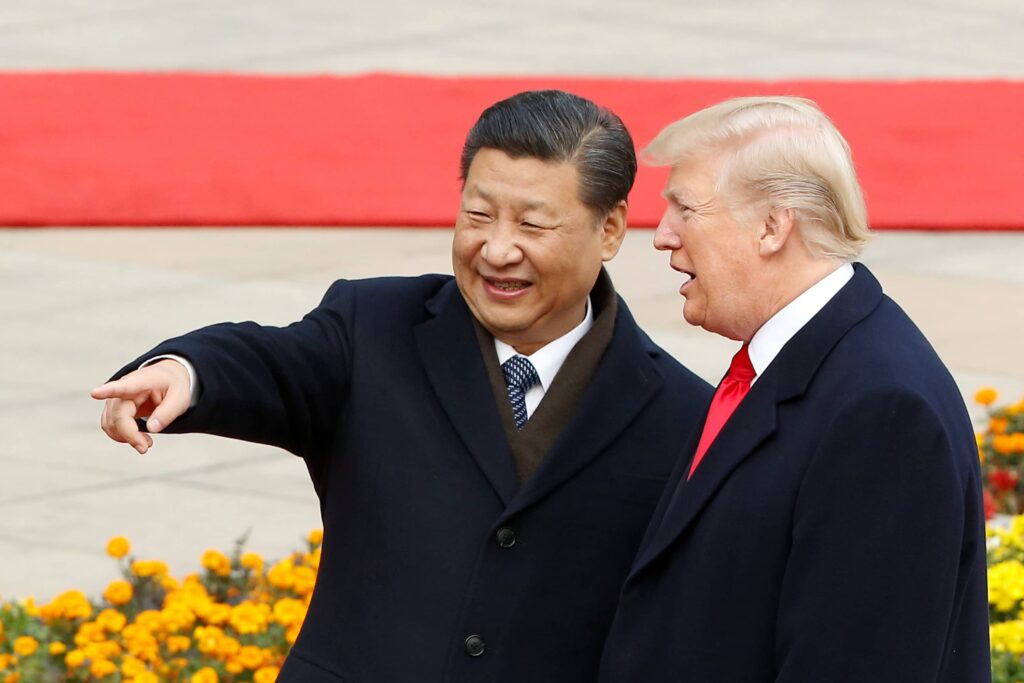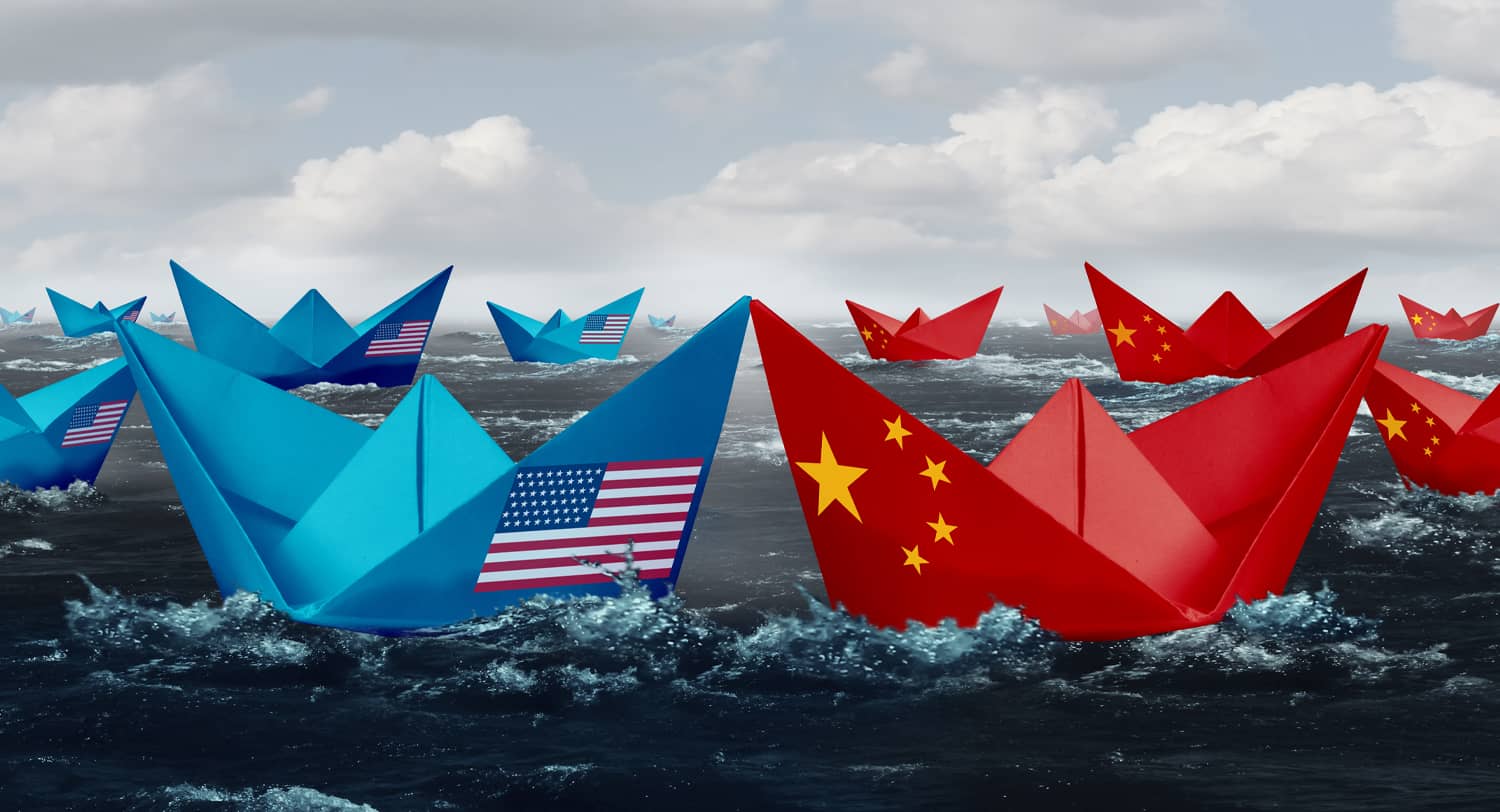The US-China relationship faces certain tension and rising competition over the next four years. While it is impossible in general to predict specific new administration policies, there are likely to be wide swings between efforts to engage China and seek compromise, with efforts to compete, confront, or even contain Beijing. President Trump will be surrounded by officials who in the past were deeply sceptical of, and several who were openly antagonistic to, China. Secretary of State-designate Marco Rubio was sanctioned by Beijing in 2020. The next National Security Advisor Michael Waltz declared that the Communist Party of China “has entered a Cold War with us, seeks to supplant us, and seeks to defeat us.” President Trump’s trade advisor Robert Lighthizer led trade talks in the first Trump administration, establishing a tariff regime when Xi Jinping did not accept market access provisions. Lighthizer is reportedly preparing a new tariff regime for the next administration. The president-elect calls tariffs “the most beautiful word.”
US and China Prepare for Strategic Competition
The US Department of Defense began seriously shifting its attention to China following the evacuation from Afghanistan in August 2021. Investments in military modernization and preparation for conflict with a peer competitor range from modernization of nuclear warheads and delivery systems to reorganization of the US Marine Corps to more effectively fight in the littoral rather than the deserts of the Middle East.
A lack of shared perceptions among US allies in the Pacific adds to the tense security situation. Xi Jinping regularly points out that Taiwan sits at the core of the U.S.-China relationship, making it the most likely flashpoint between the two powers. Taiwan is decoupling from the mainland socially and economically and transforming its military with US support. Taiwan’s vulnerability to China’s military coercion is a key concern for Japan and its own security, but that perception is not shared as acutely by South Korea or the Philippines. Australia is seeking to become more relevant in Northeast Asian security dynamics by acquiring strike capabilities, long-range nuclear submarines and strengthening its security relationship with Japan, but it remains torn between economic dependence on China and its objective of deterring violent changes to the regional status quo. More importantly, Canberra lacks a coherent Taiwan strategy, consigning it to the margins of strategic competition in Asia.
On trade relations with the US, Xi Jinping should expect the future to be challenging. The presumptive appointment of trade lawyer Robert Lighthizer to a senior economic policy position presents Xi the opportunity for negotiations to pick up where the 2018 process left off. Lighthizer’s effort to seek reciprocal access to China’s market for US companies were rejected by Xi, who remains committed to decoupling China’s economy from the West to ensure China’s resilience and defense against economic coercion. The Trump Administration may introduce rules of origin for local content that target Chinese companies investing in third countries like Vietnam and Mexico to assemble Chinese components offshore to avoid US tariffs. Threats to revoke China’s Permanent Normal Trade Relations status present a political as well as an economic threat to China. Other countries, particularly in the Global South, may follow the US lead and increase protectionist measures to slow the onslaught of cheap Chinese manufactured goods from flooding their markets and putting domestic industries out of business.
Xi Jinping is preparing his country, not just his military, for conflict. The expansion and modernization of the People’s Liberation Army (PLA) since 2000 is the largest military buildup since World War II. The PLA and Coast Guard regularly conduct coercion missions against China’s neighbors in the Western Pacific, as well as patrols in US exclusive economic zones. Since 2014, China has expanded military cooperation and joint exercises and patrols with Russia throughout the Pacific. China has expanded its inventory of nuclear warheads and developed new delivery systems over the past 10 years.
China is also modernizing and expanding civilian militia units and instituting compulsory military training for high-school and college students. New national security laws and the Military-Civil-Fusion program subordinate the private sector to the needs of national defense. Stockpiling critical materials, implementing industrial policies such as Made in China 2025 and Dual Circulation, and reviving a Mao Zedong-era program known as the “third front” (moving strategic industries to secure bastions in China’s hinterlands away from vulnerable coasts) reveal the scope of China’s preparations for a total war with the United States. A Trump presidency will not change this trend towards Beijing increasing its military capabilities and preparations for conflict.
The incoming Trump Administration appears committed to transforming the Defense Department to focus on warfighting, but threats to purge generals on ideological grounds and decimate the civil service are likely to diminish morale and readiness, leaving it less prepared to compete with China. A steady narrative of support for embattled allies such as Taiwan would be a constructive contribution to deterrence.

How Might China Respond?
Xi Jinping and the Chinese government have a range of practical and strategic responses to the Trump administration. The Biden Administration placed great importance on direct interactions between Biden and Xi, as well as the “Sullivan-Wang channel” between Jake Sullivan, National Security Advisor, and Wang Yi, Director of the Central Committee of the Communist Party’s Foreign Affairs Commission Office. Recurring dialogues between governmental departments – which numbered more than 50 in the George W. Bush Administration – steadily withered. One early sign of China’s intent will be whether Xi lifts or ignores the unspecified sanctions on future Secretary of State Marco Rubio.
The lengthy readout of Xi’s meeting with Biden at the Asia-Pacific Economic Cooperation meeting in Peru on November 16 reveals China’s concerns about ideological competition with the US. Xi and his colleagues were likely relieved that Michael Pompeo and Matt Pottinger appear to have been passed over. Pompeo’s outspoken support for Taiwan independence, and Pottinger’s Chinese-language speeches, intended to bypass China’s propaganda apparatus and reach Chinese people directly, raised concern within the Chinese Communist Party, which is fixated on ideological and political security.
US domestic policies and programs might raise further concerns and trigger a reaction from Beijing. Trump’s pledge to conduct mass deportations of illegal aliens will undoubtedly affect tens of thousands of Chinese citizens which Beijing cannot ignore. US technology or critical materials export restrictions hamper Beijing’s economic development, potentially impacting employment and social stability.
The lack of robust official communications channels and a mutually heightened sense of threat and vulnerability create a recipe for misperception, miscalculation, and potentially outright conflict. Despite the lack of certainty and clear risks, however, there may be upside opportunities for China from the Trump administration.
Opportunities for China?
Trump admires Xi, creating an opportunity for Xi to build a personal bridge with Trump to pursue Beijing’s interests. Trump does not hold emotional attachments to Taiwan and its continued autonomy, though he is not about to trade something for nothing, and Taiwan has more to offer the US than integrated circuits. It is an open question whether Xi can give Trump something of sufficient value to change US policy on Taiwan (I am doubtful), making it likely that Trump enters into futile negotiations and comes away empty-handed just as he did in the 2017-2018 trade negotiations with Xi, (and the 2018-2019 negotiations with Kim Jong-un.)
Trump might fail to persuade US allies to join a competitive approach to hedge against China. Increasing tensions with European allies makes joint economic competition against China a futile effort. Japan, South Korea, the Philippines as well as key European allies are crucial for a competitive strategy to counter China militarily and economically. Demanding allies pay the US for protection, or balance trade in goods is ultimately counter to US interests and plays into Beijing’s narratives about the US as an unreliable partner. On the other hand, Beijing will face pushback in Europe over its support for Russia’s invasion of Ukraine, and scepticism in Northeast Asia over its aggressive use of the People’s Liberation Army and Coast Guard to coerce neighbors. China’s big economy, investment promises and cheap consumer goods are ultimately not sufficient for Northeast Asian states to forsake their security interests for greater economic dependency with China.
Chinese officials and government-linked scholars are unsure about the next Trump Administration. Some hope to find the next Henry Kissinger to establish back-channels to work around China hawks in Congress and the cabinet. Others believe the bilateral relationship will inexorably continue to decline. Some see Trump’s perceived disdain for allies as an opportunity for China to continue rising while America is distracted with its domestic agenda and “America First” policies. Beijing’s initial engagements with the new Trump administration will potentially reveal whether Xi is optimistic an accommodation can be reached, or whether confrontation is inevitable.
China’s internal challenges – a slowing economy, high unemployment, capital flight, private frustration with the Communist Party’s domination of society and economy – make many Chinese citizens resigned to difficult times ahead, regardless of the direction of US-China relations. Xi Jinping’s recurring admonition to prepare for “rough seas” may be more about China’s mounting domestic challenges than a prediction of future US-China relations.

